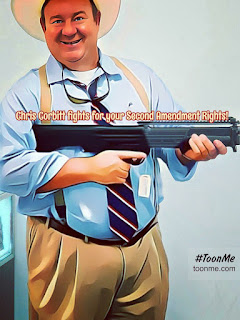See my Conduit News Interview. I discuss the safety and security issues facing Arkansans and how Chris Corbitt and I are working everyday proactively to ensure that bureau-hacks don't succeed in taking away your rights! Rob
Tuesday, November 30, 2021
Vote for Safety
Friday, February 5, 2021
Stand Your Ground is on Solid Footing
First, SB24 currently states: “A person who uses or threatens to use physical force as otherwise permitted under this subchapter does not have a duty to retreat before using or threatening to use the physical force if the person is . . . Lawfully present in the location.” Some gun-rights advocates prefer replacing “lawfully present in the location” with “right to be there.” While I believe that courts would likely interpret these two clauses as having the same effect, they might not. And to the extent courts don’t treat these clauses similarly, I believe that using “right to be there” would, in fact, weaken the bill.
A simple example should clarify the issue: I suspect that most people are concerned with the possibility of the need to use self-defense when they go, e.g., shopping, to a restaurant, or to other privately owned locations that are open to the public. While individuals have no right to be at those locations, they are “lawfully present” there. In other words, if you go to Walmart, you have no right to be there, but you are, nonetheless, lawfully present there. As such, under the proposed language change, you would not have the right stand your ground at a store or restaurant. Given this, the “right to be there” language would actually dramatically restrict the application of the Stand Your Ground law to a point where it’s largely meaningless. Thus, the proposed language change would in reality support anti-gun-rights advocates’ views, contrary intentions notwithstanding.
Second, because the current duty to retreat is also mentioned in a separate statute that protects the unborn children of pregnant mothers, SB24 also removes entirely the duty to retreat in that law as well. In removing that duty, the bill also, aptly, removed the exception to the duty. Some pro-gun-rights advocates see the removal of the exception as problematic. They are mistaken. If the duty to retreat is eliminated, it makes no sense to continue to have an exception to the now non-existent duty.
I believe that the pro-Second-Amendment advocates challenging SB24 are well intentioned but simply mistaken. I hope that I have been able to clarify the issues.
